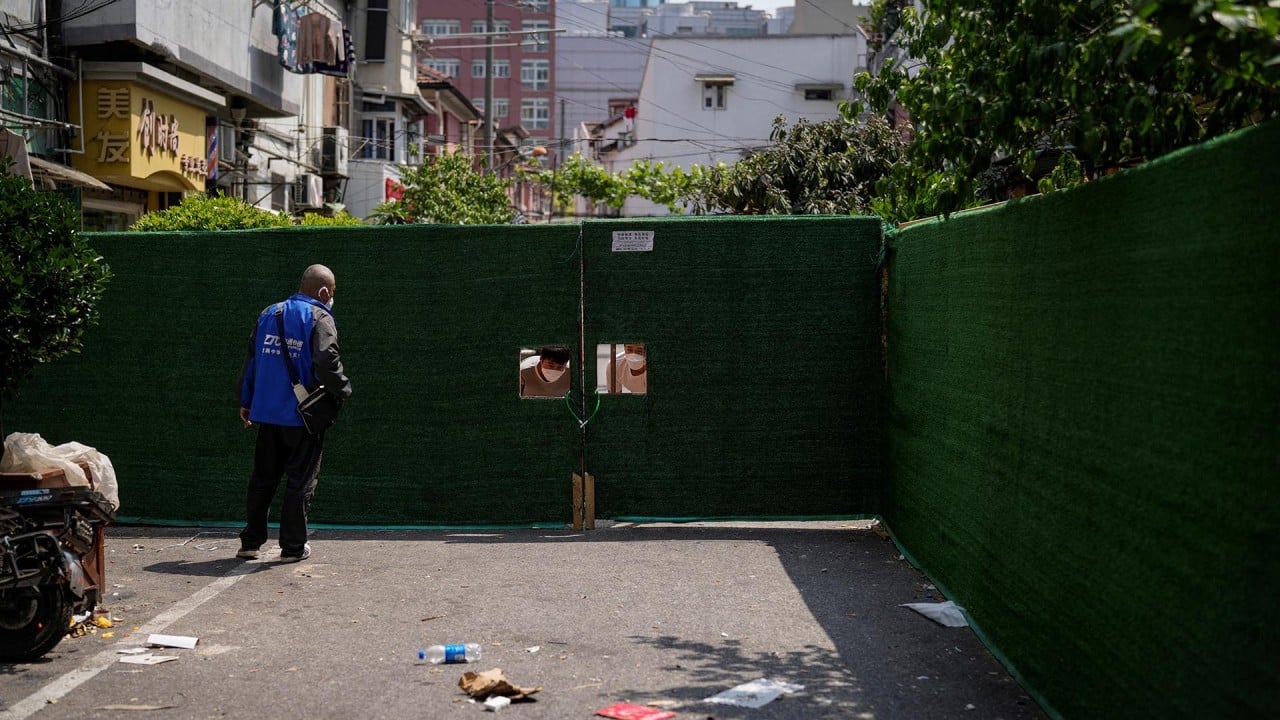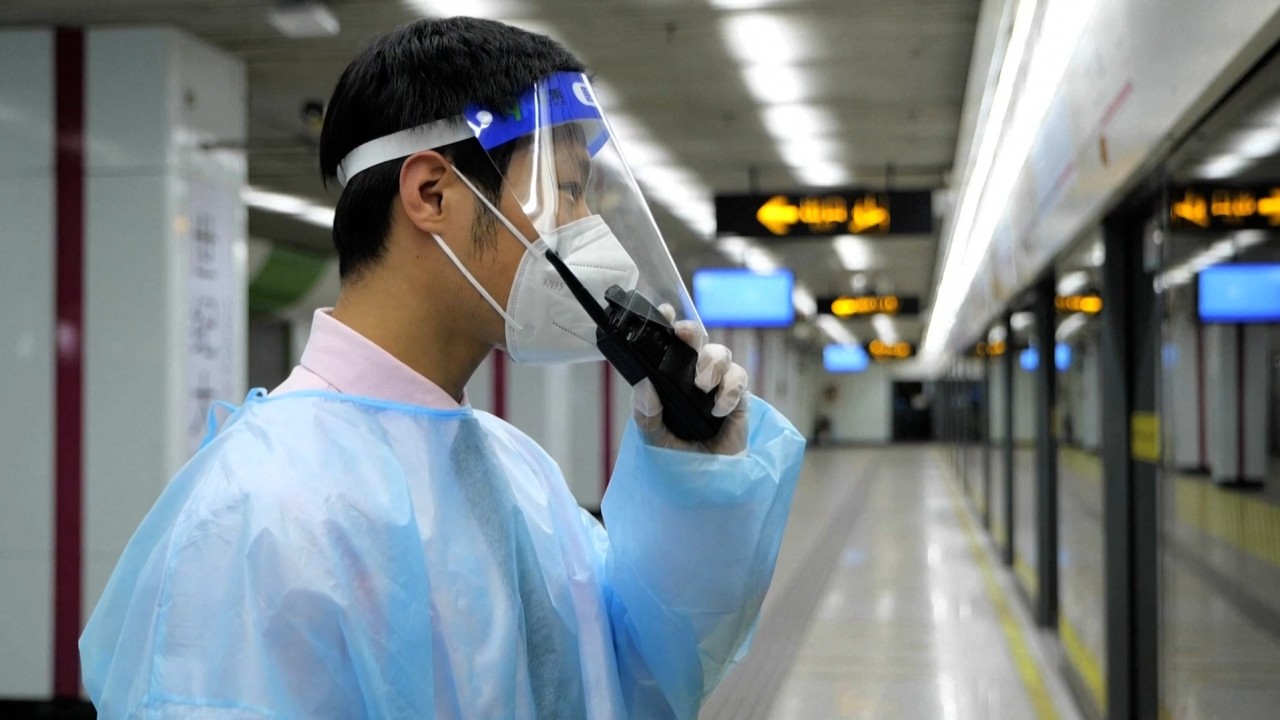
Coronavirus: Beijing doubles down on curbs to keep a lid on ‘still challenging’ outbreak
- China’s capital confirms only 51 new Covid-19 infections, but officials point to sporadic cases as cause for concern
- Shanghai to allow more manufacturers to resume production if they obey virus-control rules, offering hopes of easing supply issues
Beijing has doubled down on measures to cut off Covid-19 transmissions, with officials declaring the situation still “very challenging” despite the Chinese capital reporting just 51 new cases on Wednesday.
“The number of confirmed cases in the capital in this round of outbreak has exceeded the total number in the outbreak involving the Xinfadi wholesale market in 2020,” Beijing municipal government spokesman Xu Hejian said, referring to the city’s largest market supplying grocery stores, supermarkets and restaurants that saw infections spike in June 2020.
“New case numbers have hovered near 50 for many days. Yesterday, the number of new cases dropped, but community testing is still detecting sporadic cases. The epidemic prevention and control [situation] in the capital is still very challenging,” Xu told a press conference in Beijing on Wednesday.
This came as the nation’s political heart suspended many public transport routes and closed subway stations in its drive to curb the spread of Covid-19 and avoid the fate of Shanghai, where millions have been under strict lockdown for more than a month.
Public transport services in Chaoyang district – where most infections were found – will be suspended and residents must work from home from Thursday.
Those who cannot work from home must commute in their own vehicle, Xu said, adding that carpooling is not allowed and residents must drive directly to their final destination without detours.
Dine-in at restaurants remains suspended, with libraries, and indoor sports and entertainment venues staying shut, and public parks limited to half capacity only.
The city shut down more than 60 subway stations, about 15 per cent of the total, and halted 158 bus routes on Wednesday, according to operators.
Schools have postponed a return to in-person classes due on Wednesday to May 11, while people wishing to leave the city must present a negative nucleic acid test for a green health code before boarding a plane or train. Spot checks will be carried out for those leaving by road. Inbound travellers will have to undergo 10 days of centralised isolation followed by seven days of home quarantine.
This came as 12 of Beijing’s 16 districts on Tuesday began three rounds of mass testing to continue until Thursday.
Close contacts of positive cases must undergo 10 days of quarantine in a government facility, followed by another seven days of home isolation.
Secondary close contacts will have to be under home quarantine for seven days.
While officials have been rolling out stringent control measures, they have yet to announce a citywide shutdown.
Beijing has avoided a major Covid-19 outbreak for more than two years, and a Shanghai-style lockdown now would be disastrous for the capital as it prepares to host a landmark leadership conference for the ruling Communist Party in the second half of the year.
Schools in the main city district will go online, while government and corporate staff will be working from home during the period, according to a statement on the city’s official WeChat account.
The new measures will be reviewed after next Tuesday, depending on the coronavirus situation, the statement said.
Despite falling case numbers in both of Shanghai’s quarantine zones and the low-risk unguarded zones, there are no signs from officials that the citywide lockdown will end any time soon.
Residents have become increasingly frustrated and anxious after over a month under lockdown. Gaining access to basic necessities has become a daily struggle and families have been separated to isolate at quarantine centres.
However, there is some hope in the Shanghai business community after the municipal government said late on Tuesday it would allow more factories to resume production if they could obey virus-control rules.
The announcement raises hope that major supply-chain disturbances plaguing the industry since the lockdowns began may improve.



